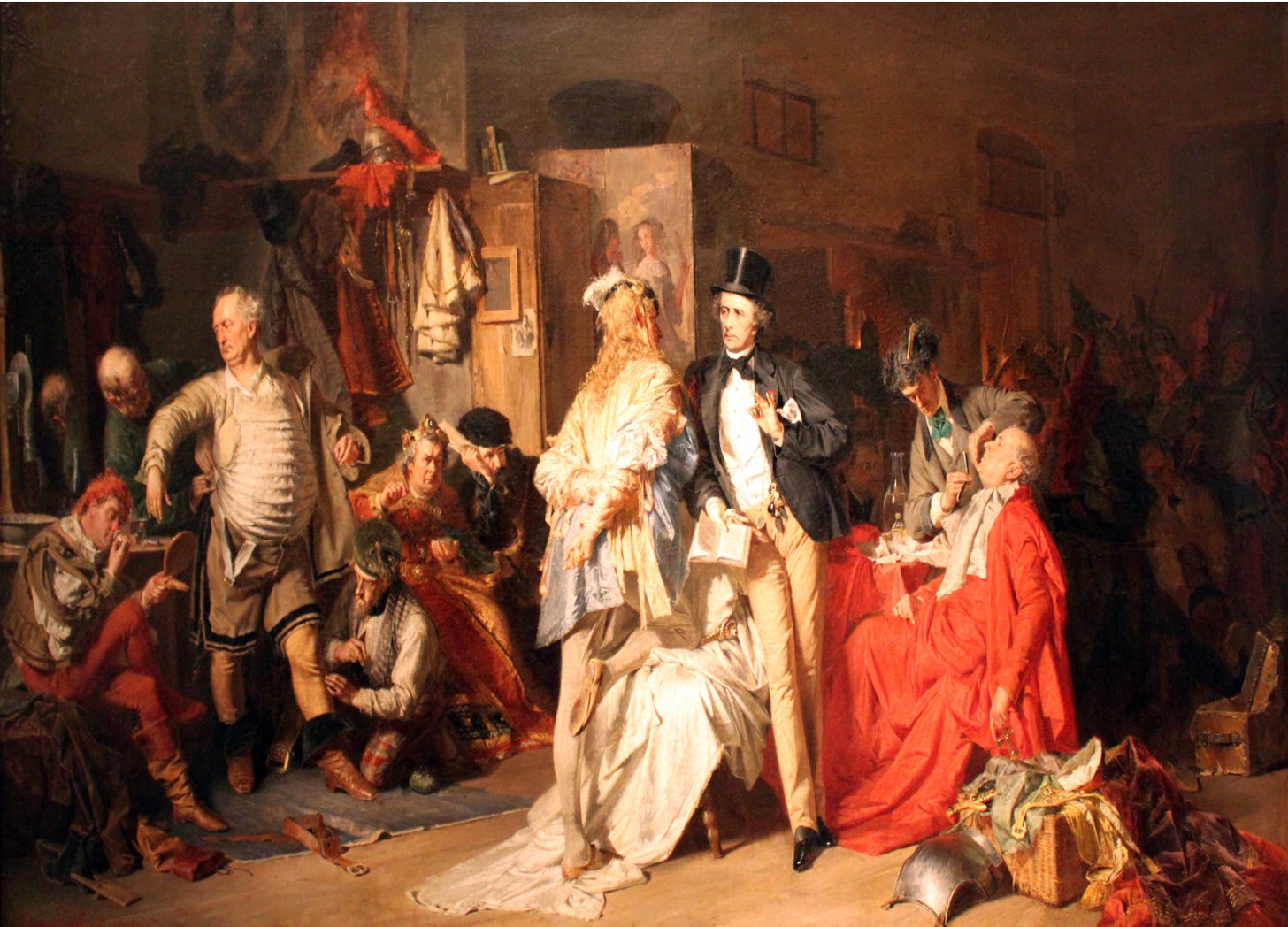When the world was young (by which I mean ‘spring of 2023’) all of the readers of Extra Muros could have attended a hooley in my kitchen without forcing Toby the housecat to vacate his resting place of choice in the middle of the linoleum floor. Thus, I will, from time to time, refresh, refurbish, and republish a piece that first rolled off the press (so to speak) during those days of unbounded optimism and excessively purple prose.
In Who’s Teaching College, Laura McKenna describes the sorry state of America’s adjunct professors. In doing this, she got me thinking about the lives of others people engaged in live performance: stage actors, dancers, musicians, and folk who entertain the crowds at Renaissance faires. With the exception of members of the last-named class (which happens to be my personal favorite), some of the people in each of these categories earn decent money. (In a tiny minority of cases, said remuneration might well be described as “indecently decent.”) Most, alas, live lives comparable to those so ably described by Mrs. McKenna. They travel from job to job, dine on dried noodles, and get no credit, let alone compensation, for the long hours they devote to the pre-performance preparation.
This flowering of Thespian poverty springs from the same source as the Steinbeckian situation of peregrine PhDs. The number of people able to sing, dance, or recite the immortal words of the Bard of Avon in public greatly exceeds the number of proper jobs in those fields. This superfluity, in turn, owes much to formal courses of study which recruit students by fostering what, for most of them, will prove to be false hope.
Don’t get me wrong, I love live theater, live music, and (as you already know) Renaissance faires. However, whenever I compare the little envelope where I keep my ticket stubs to my dragon’s hoard of audio and video files, I am reminded that my enjoyment of such things, however intense, pales in comparison to my consumption of electronic entertainment. For me, as it is for most people, live performance will, like rides in horse-drawn carriages, never be more than a rare treat.
The same is true for academic lectures. As much as I delight in viva voce exposition delivered before a properly proximate audience, I am much more likely to listen to lectures while driving, cooking, or making illustrations for the Tactical Notebook. (How’s that for a shameless plug for my other Substack?) Indeed, if I wished to replace the two or three learned podcasts I enjoy each day with scholarly speeches of the old fashioned kind, I would have to hire an adjunct professor.
For a version of this piece that preserves older comments:
For a guide to the pieces published in Extra Muros:
To share, subscribe, or support:








In the second paragraph of your article you use the term "renumeration." I have no doubt you meant to use the term "remuneration," just as I have no doubt of your complete comprehension of the difference between these two nouns.
Nearly 50 years ago, I was fortunate to attend a lecture by Vincent Scully, eminent art historian, and Sterling professor at Yale. Since art history is the history of humanity and its cultural artifacts, its historians tend to be polymaths--Scully was no exception.
He often received standing ovations--which was the case at the lecture I attended. His audience, which over-filled the auditorium of Le Corbusier's Carpenter Center at Harvard U, were mesmerized after the one-hour lecture. Prof. Scully asked if they wanted to stay longer. His lecture went for four enthralling and memorable hours. Not many professors get asked for encores. Sadly, such intellectual genius is seldom found at today's Ivy League factories.